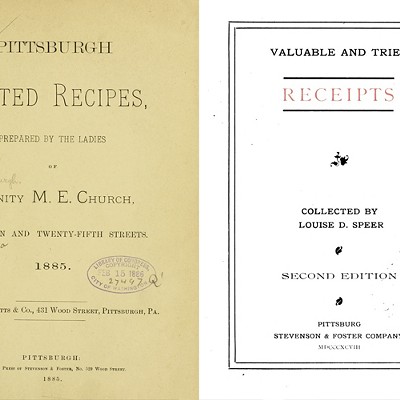Friday, February 18, 2011
Local media landscape getting crowded with planned new online venture
So it looks like Charlie Humphrey, who heads up Pittsburgh Filmmakers, is launching an online news venture later this year, with help from the Pittsburgh Foundation.
Attentive City Paper readers shouldn't be surprised. We first reported on the foundation community's interest in such a venture back in June. That story came about in the context of discussions about the future of WDUQ, but clearly foundation officials were thinking about online models as well:
Grant Oliphant, who heads the Pittsburgh Foundation, notes that "much of our work involves strengthening communities." And one key to a healthy community is a public that is "engaged in decision-making and informed about what's going on." That's why, along with the Heinz Endowments especially, "We're very concerned about the future of journalism."
...
Local foundations have also followed the efforts of the Knight Foundation, a Miami-based grant-maker with roots in the newspaper business. Through its "New Voices" grants, Knight has helped fund upstart community journalism projects around the country -- from Oakland, Calif., to Coral Gables, Fla.
Not all the resulting journalism has shaken the pillars of power ("Dutton/Brady [school] board approves three bus routes," read one recent Knight-funded headline) and some ventures have gone dark since getting Knight funding. But they have provided new forums for community discussion. And as a study by the Pew Project for Excellence in Journalism notes, "some partnerships have begun between the old and the new media." Some newspapers, for example, share links and collaborate on reporting with local blogs.
The Knight Foundation's ventures "tend to be really good models for how you could do something here," says Oliphant.Today's news, not surprisingly, also includes Humphrey suggesting the possibility of partnerships with existing media.
Nor is it particularly surprising to see him involved in the enterprise. Humphrey, after all, had been working as a public liasion with the foundations as they pondered WDUQ's fate. And at one time, he was the editor of the now-defunct In Pittsburgh -- an alt-weekly which predated City Paper, and which was eventually merged into it. (Full disclosure: I am a former In Pittsburgh employee myself, though I worked there after Humphrey's departure.)
So in one way, this deal makes a hell of a lot of sense. (In fact, when I interviewed the Pittsburgh Foundation's Oliphant last summer, I recall asking him why the foundations were even thinking of trying to launch a journalism enterprise in a capital-intensive medium like radio.)
On the other hand, the venture raises some interesting questions.
First, even though the foundations ultimately weren't involved with the sale of WDUQ, its new owners are apparently still planning to focus on local journalism. And as I said when they announced those plans, "when you consider Pittsburgh already has two daily papers -- each held by independent owners willing to sacrifice profit margins that corporate owners would insist on -- I'm not sure that the problem with journalism here is insufficient supply. It may be a lack of demand."
And I haven't even mentioned Patch.com -- a hyperlocal journalism initiative launched by AOL.com. In recent months, Patch.com has launched a series of community-level news sites in the area. Among them are sites covering areas like Regent Square and environs, Dormont/Brookline, and Upper St. Clair. Some of these sites are better than others, though there is some journalistic muscle here: Former Post-Gazette staffer Cindi Lash is a regional editor, and contributors include folks with journalistic experience (including a City Paper intern or two).
As an alt-weekly editor, I believe strongly in having as many voices as possible. And as a reluctant capitalist, I am compelled to profess that competition is the bedrock of our society. A surplus in media outlets should -- at least in theory -- result in a winnowing process where only the best survive.
That said, I think one of the things that characterizes Pittsburgh is that there's a surplus of civic institutions -- many of which date back decades or even centuries -- while the citizenry has shrunk, and civic life has in many ways calcified.
The backers of this new venture, at least, aren't seeking to put anyone out of business. The Pittsburgh Foundation's Oliphant told the Post-Gazette today that the new venture "will hopefully supplement the traditional media in the community." I guess we'll see.
ADDED: More from the Pittsburgh Foundation on the initiative. Time to change out of those pyjamas and burnish those resumes, bloggers!
A process will begin shortly to appoint two full-time staff members, an editor and a web content manager.
...
Tags: Slag Heap










